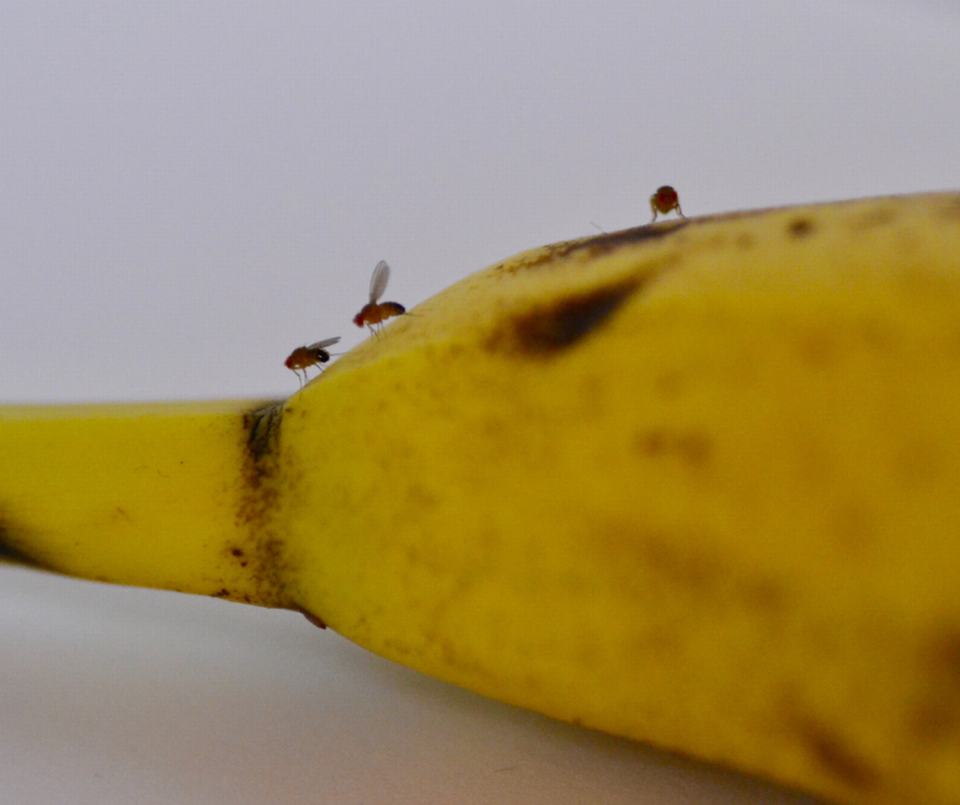Fruit flies are coming for SC homes soon. Here are the fastest ways to get rid of them
As much as you may enjoy snacking on some delicious fruit while taking in the outside air during the summer in South Carolina, this may also attract some unwanted visitors.
Among them are fruit flies.
As annoying as it may seem while outdoors, it can be exceptionally worse while in the comfort of your own home.
What are fruit flies?
If you have noticed small-looking flies or gnats around your kitchen lately, they are probably fruit flies.
Fruit flies can be a problem year round, but are especially common during late summer/fall as they are attracted to ripened or fermenting fruits and vegetables, according to Michael Potter, an extension entomologist from the University of Kentucky’s College of Agriculture.
Adult fruit flies are about 0.125 inches long, usually have red eyes and the front portion of the body is tan and the rear portion is black. These insects will lay their eggs near the surface of fermenting foods or other moist, organic materials, and, upon emerging, the tiny larvae will continue to feed near the surface of the fermenting mass, Potter wrote.

“The reproductive potential of fruit flies is enormous; given the opportunity, they will lay about 500 eggs. The entire life cycle from egg to adult can be completed in about a week,” he wrote.
This may explain why they suddenly seem to appear overnight into a full nuisance, invasive situation.
Why do they come into your home?
Drosophila, the scientific name for fruit flies, is a Latin word that means “dew-loving,” from Greek roots drosos, “dew,” and philos, “loving.”
As their name may suggest, these tiny insects are attracted to items in your home or around your yard such as fermenting fruits or sweet liquids like juice, soda, beer or something that was thrown into the garbage can.
“Tomatoes, melons, squash, grapes and other perishable items brought in from the garden are often the cause of an infestation developing indoors. Fruit flies are also attracted to rotting bananas, potatoes, onions and other unrefrigerated produce purchased at the grocery store,” Potter wrote.
Fruit flies are also drawn to things such as drains, garbage disposals, empty bottles and cans, trash bags, cleaning rags and mops. Essentially, they are drawn to food waste and moist environments, according to Arrow Exterminators.
Although it might seem as if they just appear overnight like magic, there is a more logical reason.
Fruit flies are so small they can fit through many screens. This means they can easily enter your home despite your screened in porch, door or window.
They can also come into your home through loose seals around doors or windows, cracked walls or from eggs laid inside of a piece of produce from the grocery store that went unnoticed.
How can you get rid of them once and for all?
Are you looking for any tips that may help you rid these tiny pests from your home for good this year?
Here are several tips that will not only get get rid of your fruit fly problem but will help prevent them from coming in the first place.
Be sure to wash your dishes regularly. This means don’t leave them in the sink overnight.
Clean up spilled beverages as soon as they occur and regularly wipe down your countertops.
Store all fruits and vegetables in air-tight containers or in the refrigerator.
Use cups with lids while you enjoy all sweet beverages.
Do not leave any food out for extended periods of time or overnight.
Take your garbage bags out regularly and keep garbage cans clean.
Keep all drains and garbage disposals clean and dry, and remove areas of standing water to prevent moist areas.
Inspect fruit and vegetables for signs of fruit flies before bringing produce home from the store. Try going a step further and wash your fruits and vegetables once you get home.
“People who can their own fruits and vegetables, or make wine, cider or beer should ensure that the containers are well sealed; otherwise, fruit flies will lay their eggs under the lid and the tiny larvae will enter the container upon hatching,” detailed Potter.
Windows, doors and other areas should be equipped with tight-fitting, 16 mesh or tiny insect specific, screens to help prevent adult fruit flies or other pests from entering into your home from the outdoors.
Construct your own special trap by placing a paper funnel, which can be rolled from a piece of paper, into a jar that is filled with a few ounces of apple cider vinegar. If you do not have apple cider vinegar, try using another sweet beverage. Then, place the jar trap wherever fruit flies are seen. NOTE: If you struggle to create a paper funnel that fits the top of your jar, try covering plastic wrap to the top, securing it with a rubber band and poke holes into the top.
For those who might not have a jar on hand, fill a bowl or container with apple cider vinegar and a few drops of dish soap mixed together. This solution will both attract and entrap curious fruit flies in the mix.
Try hangings dry tea bags, herbs or break out your essential oil diffuser that contain natural scents such as peppermint, eucalyptus, lemongrass, lavender and clove. As much as we might enjoy their smell, fruit flies have been known to not like it at all.
Insect traps, such as sticky traps, light traps or fruit fly specific traps.
Fruit fly specific sprays and pesticides for those who prefer to try the chemical route.
Call your local pest control company.
Do you have your own tips and tricks to help keep fruit flies away? Feel free to share by emailing me at smcdonald@islandpacket.com.

